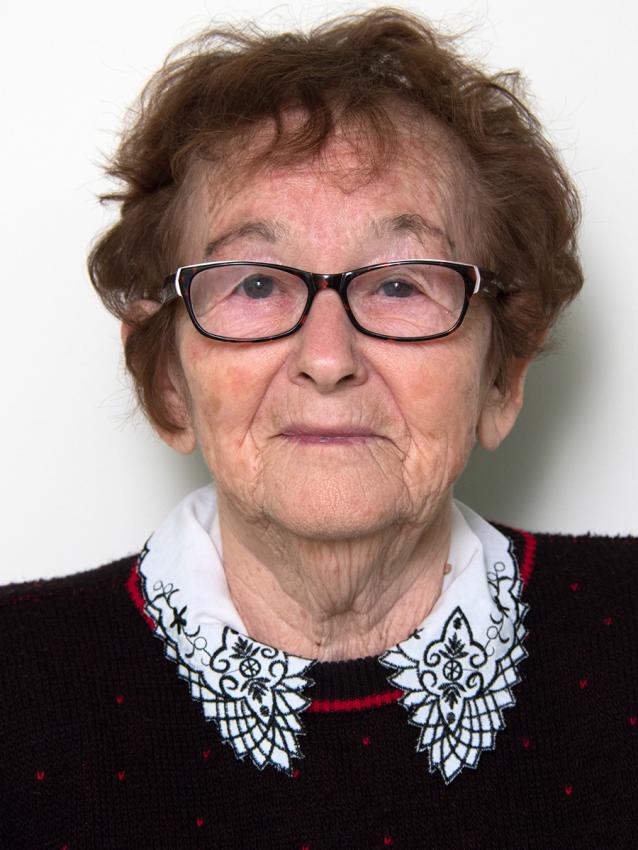Elka Abramovitz lit one of six torches at the State Opening Ceremony of Holocaust Remembrance Day at Yad Vashem in 2017.
Elka Reines-Abramovitz was born in 1932 in Novoselitsa, northern Bessarabia, Romania (now Ukraine) to Shimon, a leatherworker, and Frida. Her parents gave their three children a Jewish and Zionist education.
On 7 July 1941 the Romanian Army entered Novoselitsa. “They shot people and burned houses. My father was beaten with a rod,” Elka recalled. “For the first time in my life I saw dead people, masses of bodies lying by the road. The images are seared into my mind.”
On 27 July, the Romanians ordered the town’s Jewish inhabitants to leave for Transnistria. Elka and her family went on foot. “We walked endlessly,” said Elka. “We drank water from puddles. If we found corn or sugar beets, it was a godsend. But the family was together. The bigger ones carried the smaller ones on their backs.”
Romanian soldiers standing on the bridge over the Dniester River threw numerous deportees into the river and shot them. The remainder was sent to the Edineți ghetto, where many died of hunger and disease. The survivors continued onwards to Yampol, and from there to Kosharintsy in Transnistria. “They crammed us into three stables. It was a very cold winter,” said Elka. “They gave us no food or water. People died every day.”
Shimon worked in the fields for the local farmers, but Frida soon fell ill and died, along with Elka's grandfather, grandmother and two cousins. Within a year, only 70 out of 480 people remained.
Shimon’s expertise was recognized by the locals and the family moved to a house in one of their gardens. “That saved our lives,” said Elka. “My father carried me there on his back because I could no longer walk. After ten months, I started walking again.”
In March 1944, the Red Army reached Transnistria and Shimon was conscripted. After his discharge in September 1945, he and the children returned to Romania. Elka was sent to a Jewish orphanage in Cluj.
Elka and her sister Ester joined the Habonim Dror youth movement and sailed for Eretz Israel (Mandatory Palestine) aboard the Pan York in December 1947. After detention by the British in Cyprus, they reached Eretz Israel in March 1948.
Elka remains active in a Holocaust remembrance organization, and assists the families of fallen IDF soldiers.
Elka and Arie z"l , a native of Tel Aviv, have three children, ten grandchildren, and six great-grandchildren.


